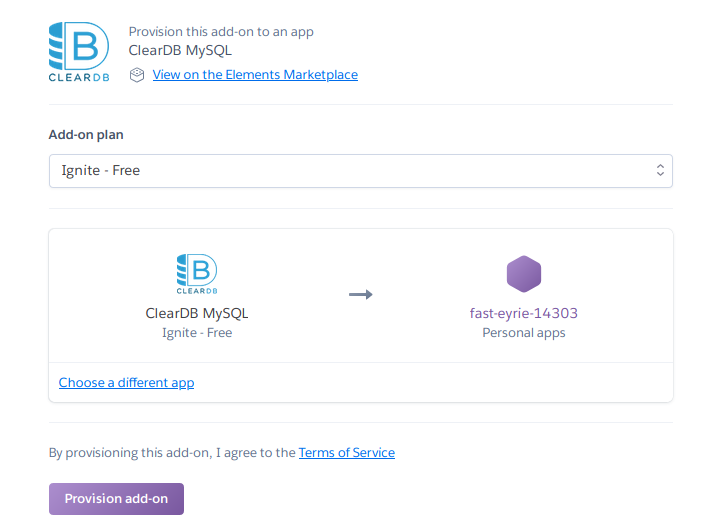Helidon MP project that includes REST operations to obtain exercises from a MySQL database.
React frontend repository and live site.
docker-compose upcurl -X GET http://localhost:8080/workout
{
"name":"Generated Workout",
"exercises":["Pullups","Flutter Kicks","Lunge","Plank knees to elbows","Burpees","Single Arm Swings","Reverse Crunch","Pushups","Plank","Wide Pushups"]
}
curl -X GET http://localhost:8080/workout?type=arms,back&limit=3
{
"name":"Generated Workout",
"exercises":["Superman Hold","Curls","Rows"]
}
For more information see the Heroku Dev Center Documentation
In the Dockerfile, change the CMD to
CMD java -Dserver.port=$PORT -jar helidon-quickstart-mp.jar
Log in to Container Registry:
heroku container:loginCreate a Heroku app:
heroku createNote that commands after this may need suffixed with --app where is the Heroku provided name.
Build the image:
docker build -t helidon-quickstart-mp .Push to Container Registry:
heroku container:push webRelease image to your app:
heroku container:release webOpen the app in your browser
heroku openNote that there are command line tools to provision the MySQL add-on.
Provision ClearDB MySQL add-on from the Heroku dashboard:

Retrieve database URL:
heroku config | grep CLEARDB_DATABASE_URLCopy this URL to microprofile-config.properties filling in the generated username, password, and database name:
javax.sql.DataSource.example.dataSourceClassName=com.mysql.cj.jdbc.MysqlDataSource
javax.sql.DataSource.example.dataSource.url=jdbc:mysql://<username>:<password>@us-cdbr-east-02.cleardb.com/<heroku_db>?reconnect=true
javax.sql.DataSource.example.dataSource.user=<username>
javax.sql.DataSource.example.dataSource.password=<password>Note that if you have another frontend you can add it like so:
cors.paths.0.allow-origins = https://random-workout-generator.netlify.appTo populate the database you could use a tool like MySQL Workbench.
You can connect using the same credentials from microprofile-config.properties.
You can use the init_script.sql to create the schema and populate the tables.
To query the database all references to workout.exercises in WorkoutResource.java should be changed to <heroku_db>.exercises
Finally, to deploy to Heroku, you can use the same commands listed above.
docker container run --rm -d -p 3306:3306 \
--env MYSQL_ROOT_PASSWORD=password \
--name mysql \
mysql:8docker exec -it mysql bash
mysql -pmysqldump -p --databases workout > dump.sqlcat dump.sqlCopy and paste into /docker/data/dump.sql